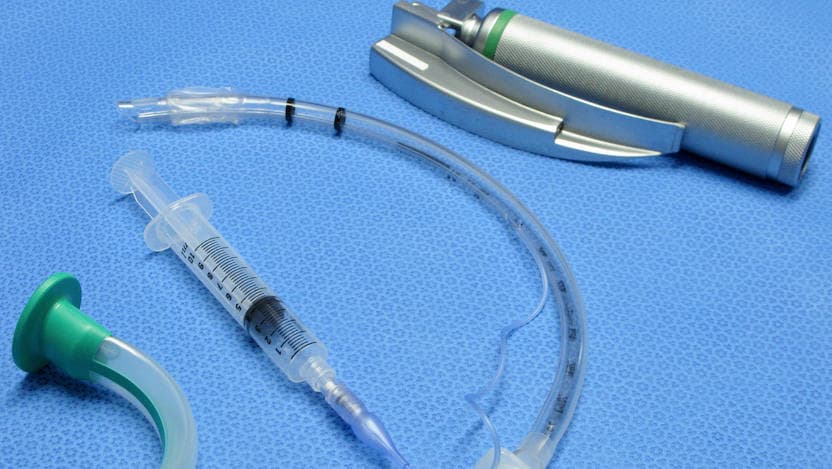African American children with asthma less likely to be put on ventilators if administered aminophylline over terbutaline

African American patients admitted to the pediatric intensive care unit (PICU) with severe asthma have lower odds of intubation and mechanical ventilation if administered the drug aminophylline as opposed to the drug terbutaline, according to a new study in the journal Pediatric Pulmonology.
Currently, there is no set standard of care for second-line therapies administered to pediatric asthma patients admitted to PICUs across the United States, despite asthma being the most common chronic disease among children.
“Previous data suggested African Americans may respond differently to existing therapies for asthma,” said lead study author Casey Stulce, MD, a pediatric critical care physician at University of Chicago Medicine's Comer Children's Hospital. “Our hope is that further research will help us develop a better standard of care for children suffering from near-fatal asthma when they don’t respond to first-line medications.”
Systemic corticosteroids and inhaled short‐acting β‐agonists are the first-line standard of care in treating status asthmaticus, or critical asthma in the PICU. However, there is a lack of consensus in the management of children whose asthma is not improved by these initial therapies. Second-line treatments can include administering either aminophylline or terbutaline.
Researchers at UChicago Medicine used data from the Pediatric Health Information System to analyze more than a thousand PICU patients ages 2 to 18 who were administered either aminophylline or terbutaline as a second-line therapy for their asthma. About 53 percent of those who received terbutaline were put on ventilators, compared to roughly 33 percent of children who received aminophylline.
“Anytime we can avoid intubating a patient with asthma, that’s a good thing,” said study co-author Jason Kane, MD, also a pediatric critical care physician at Comer Children's. “In addition, a great number of children admitted to our hospital are African American. We hope the information gleaned from this study will help improve the lives of our children and children across the world.”
Stulce noted that the data alludes to differences in care both regionally and nationally. “This reinforces the need for a more standardized guide to managing critical asthma so we can reduce variability and improve outcomes in these patients," she said.
The researchers hope their study will lead to a closer investigation into clinical data on whether aminophylline improves outcomes in specific subsets of the PICU asthma patient population.
“Terbutaline and aminophylline as second-line therapies for status asthmaticus in the pediatric intensive care unit,” is available online in the journal Pediatric Pulmonology. Other study authors include Suzanne Gouda, MD, and Sana J. Said, PharmD, BCPPS.

Casey Stulce, MD
Casey Stulce, MD, is a specialist in pediatric critical care medicine. She provides care for critically ill infants and children in the pediatric intensive care unit (PICU) and pediatric sedation service.
View Dr. Stulce's physician profile
Jason Kane, MD
As a pediatric critical care specialist, Dr. Jason Kane, is highly skilled in diagnosing and managing care for critically ill infants and children.
See Dr. Kane's bio